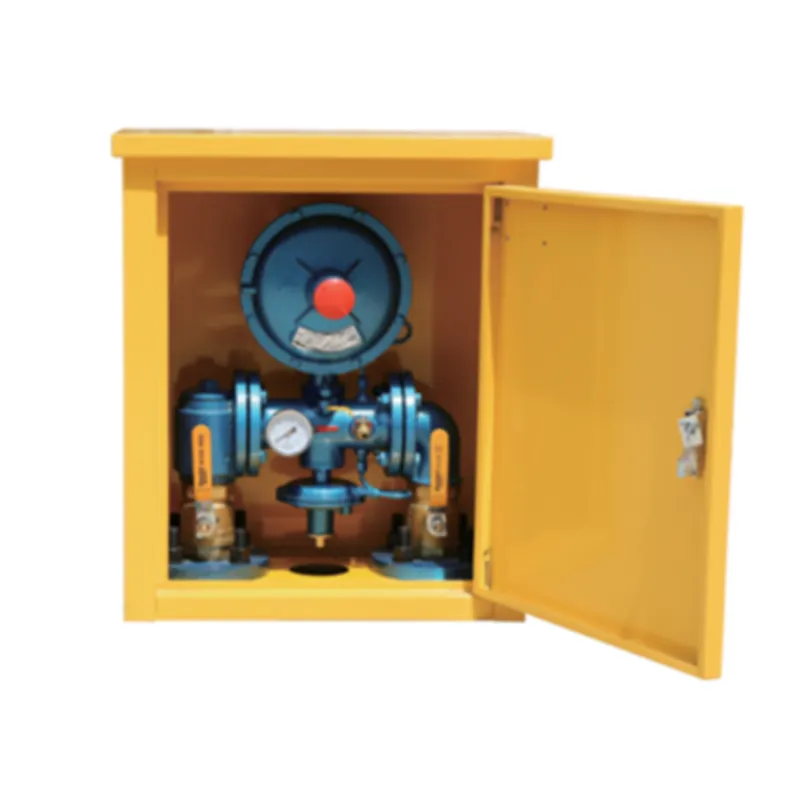
Dec . 22, 2024 19:52
Back to list
Understanding the Functionality and Benefits of Electric Valves in Modern Applications
Understanding Electric Valves Functionality and Applications
Electric valves play a pivotal role in various industrial processes, serving as essential components for controlling fluid flow in systems ranging from water treatment facilities to complex manufacturing setups. Unlike traditional mechanical valves, electric valves utilize an electrical signal to operate, providing precise control over the flow of liquids and gases. This capability makes them indispensable in modern automation and control systems.
The Anatomy of an Electric Valve
Electric valves typically comprise three main components the valve body, the actuator, and the control system. The valve body serves as the conduit through which the fluid flows. It can be designed for various types of control, including on/off and modulating control. The actuator, which is powered electrically, is responsible for opening or closing the valve based on the signals it receives from the control system. Meanwhile, the control system—often integrated with a programmable logic controller (PLC) or a centralized control unit—determines when and how much the valve should operate.
Electric valves can be designed in several configurations, including ball valves, butterfly valves, and globe valves, each suitable for specific applications. For instance, ball valves are favored for their ability to provide quick shutoff capabilities, while butterfly valves are commonly used for regulating flow due to their lightweight and space-efficient design.
Advantages of Electric Valves
One of the most significant advantages of electric valves is their ability to be controlled remotely. This remote control capability not only enhances operational efficiency but also ensures safety by allowing operators to manage systems from a safe distance. Moreover, electric valves can be easily integrated with automation systems, providing real-time feedback and enabling predictive maintenance.
electric valve

Precision is another hallmark of electric valves
. They can be finely adjusted to maintain specific flow rates or pressure levels, which is crucial in processes that require exacting standards. The ability to modulate flow means that industries can optimize their processes, reduce wastage, and enhance the quality of their products.Additionally, electric valves tend to require less physical effort to operate compared to manual valves, making them a more ergonomic choice for various applications. They also generally have shorter actuation times, further streamlining operations.
Applications in Various Industries
Electric valves are employed in a wide range of industries, including water treatment, pharmaceuticals, food and beverage, petrochemicals, and HVAC. In water treatment, for instance, electric valves are used to control the flow of chemicals and water in filtration and purification processes. In pharmaceuticals, stringent regulations require precise control over fluid ingredients; thus, electric valves are ideal for maintaining consistency and quality.
The food and beverage industry also relies on electric valves for processes such as pasteurization and bottling, ensuring that products are safe and produced under optimal conditions. In HVAC systems, electric valves help regulate the flow of heating and cooling fluids, contributing to energy efficiency and comfort.
Conclusion
Electric valves represent a significant advancement in fluid control technology, offering enhanced precision, efficiency, and safety. As industries continue to evolve and embrace automation, the importance of electric valves will only increase, making them integral to various processes across multiple sectors. By understanding the functionality and applications of electric valves, engineers and operators can make informed choices that enhance productivity and ensure the reliability of their systems.
Latest news
-
Safety Valve Spring-Loaded Design Overpressure ProtectionNewsJul.25,2025
-
Precision Voltage Regulator AC5 Accuracy Grade PerformanceNewsJul.25,2025
-
Natural Gas Pressure Regulating Skid Industrial Pipeline ApplicationsNewsJul.25,2025
-
Natural Gas Filter Stainless Steel Mesh Element DesignNewsJul.25,2025
-
Gas Pressure Regulator Valve Direct-Acting Spring-Loaded DesignNewsJul.25,2025
-
Decompression Equipment Multi-Stage Heat Exchange System DesignNewsJul.25,2025

